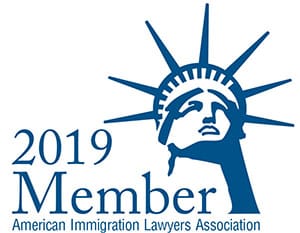Immigration has been a hotly contested issue in recent years and many Maryland residents are concerned as to how that might impact them. For foreigners living in the United States who are being subjected to abuse, it can be exponentially fear-inducing and worrisome. A lack of understanding of the protections accorded to people – even immigrants – who are battered is key to being shielded and putting a stop to the mistreatment. The Immigration and Nationality Act (INA) and the Violence Against Women Act (VAWA) are in place to help. Knowing how spouses can use these laws is imperative.
INA, VAWA and how battered spouses are protected
A battered spouse can use INA and file an immigrant visa petition. This also applies to parents and children who might be facing abuse. If the victim is the spouse of a U.S. citizen or a Green Card holder, the person can file and the alleged abuser will not know about it. This is a protective strategy and can give the abused spouse the right to stay in the country. A spouse can file if they are abused by the citizen or Green Card holder. They can also file if they have child who is being abused.
It is important to meet the requirements to qualify based on a spousal relationship with one of the following factors in place: the person must be married to the citizen or Green Card holder; the marriage must have ended in divorce or death of the spouse within two years before filing; the spouse had his or her citizenship or status as a permanent resident revoked or renounced it within two years before the filing because of a domestic violence incident; or the person must have been under the impression that they were legally married to the abusive citizen or Green Card holder even if it was not a legitimate marriage. In addition, there must have been battery or extreme cruelty, the marriage must have been in good faith and not due to immigration laws, and the person must have lived with the spouse.
Legal assistance can be key with VAWA-based immigration cases
Immigrants who have been mistreated in their marriage and believe they have nowhere to turn should be cognizant of their rights under INA and VAWA. Since petitioning for the right to remain in the U.S. can be complicated on its own, it may be even more intimidating if the person is a victim of spousal abuse. For help with a case, a consultation with a legal professional who is experienced in immigration law can provide compassionate advice with how to proceed.





